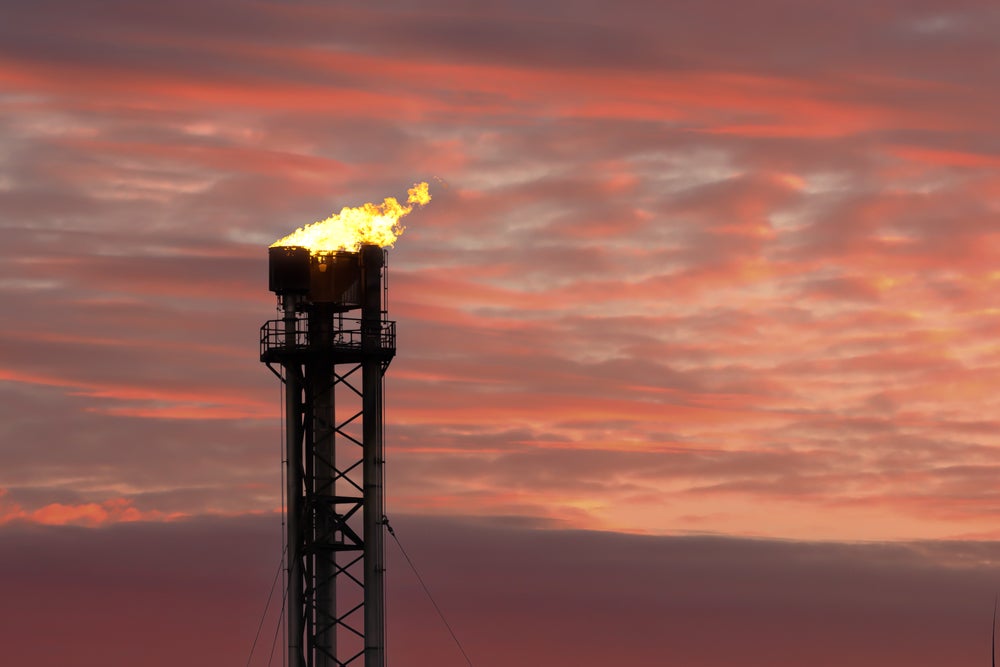The US government is taking steps to reduce methane emissions from the oil and gas industry, despite pushback from business leaders. The Inflation Reduction Act (IRA) includes a nationwide fee of up to $1,500 per tonne for greenhouse gases, and the EPA is finalizing a new rule that will require energy companies to take action on methane leaks. US natural gas companies have added the most rigs in 15 months as President Biden seeks to set standards for responsibly sourced natural gas, but his new rules to cut methane emissions show his commitment to environmental protection. The DOE has announced nearly $47m in funding for 22 research projects aimed at finding new ways to monitor methane emissions. Oil and gas companies have criticized the proposed rules, claiming that they add significant new compliance costs and give too much power to environmental advocacy groups. Republicans have put forward a bill to remove the per tonne methane fee from the IRA, but it is unlikely to become law.
Biden Administration Takes Action to Reduce Methane Pollution from Oil and Gas Industry

The Biden administration is pushing for stricter measures to clamp down on methane pollution from the oil and gas industry, despite opposition from energy companies and Republican congress members. This is in line with the government’s commitment to reducing the release of methane into the atmosphere, as part of the Inflation Reduction Act (IRA) and the Emissions Reduction Plan.
Methane is a potent greenhouse gas that is produced by the oil and gas industry through leaks, flaring, and deliberate releases. US oil and gas companies are responsible for around a third of the nation’s methane emissions, which has accounted for 30% of the rise in global temperatures since the industrial revolution, according to the International Energy Agency.
The US Environmental Protection Agency (EPA) is finalizing a new rule that will require energy companies to take action on methane leaks by finding and plugging them at new and existing wellheads, pipeline compressor stations, and other sites. Emitters of methane may also be charged up to $1,500 a tonne under the IRA, which is the first nationwide fee imposed for the production of greenhouse gases.
EPA administrator Michael Regan stated that the agency has “designed a very aggressive rule to ensure that everyone that’s contributing to this problem has some full accounting for that.” He added that no oil and gas systems would be “getting out of jail free.”
Despite the new regulations, many in the US oil and gas industry dispute them, as they add additional costs at a time when they are expected to drill more wells. Biden’s recent energy policies suggest a preference for natural gas production, but his new rules to cut methane gas show his commitment to environmental protection.
Methane is the primary component of natural gas and the second most abundant hydrocarbon after carbon dioxide. Last week, US natural gas firms added the most rigs in 15 months as Biden seeks to set standards for the certification of what he called “responsibly sourced natural gas,” a move that has been criticized as greenwashing.
The government’s strong stance on methane reduction comes after criticism from business leaders that Biden’s approach was overly lenient. The EPA’s new rule is part of a series of measures to reduce greenhouse gas emissions and combat climate change.
DOE Announces $47 Million Funding for Methane Emission Research
The US Department of Energy (DOE) has announced $47 million in funding for 22 research projects aimed at finding new ways to monitor methane emissions. The oil and gas sector is the largest industrial emitter of methane, which is a potent greenhouse gas.
US Secretary of Energy Jennifer M. Granholm stated that the projects will help accelerate the deployment of technology that detects and reduces methane emissions, leading to long-lasting health and environmental benefits for communities across the country.
Oil and gas companies have criticized the proposed rules, including the ‘Super Emitter Response Programme’, which allows private groups to monitor and report leaks, claiming that it gives too much power to environmental advocacy groups. The American Exploration & Production Council has also expressed concerns about the significant new costs associated with compliance.
Republicans recently introduced a bill seeking to remove the per tonne methane fee from the IRA, but it is unlikely to gain sufficient support to become law.
Don’t miss interesting posts on Famousbio










